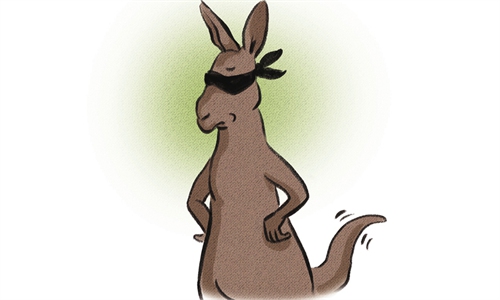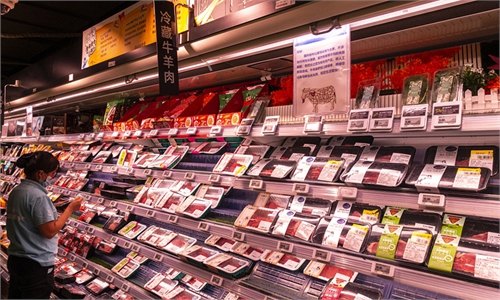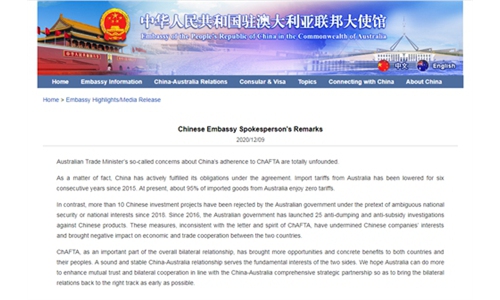COMMENTS / EXPERT ASSESSMENT
Anti-China moves will bring more pain to Australian economy

Illustration: Tang Tengfei/GT
Blind to all possible consequences, Canberra seems intent on maximizing friction with Beijing at the expense of Australian businesses and consumers. By passing a law to empower the Morrison government to veto foreign agreements signed by local governments, which is widely regarded as a move targeting the Australian state of Victoria's agreement with China under the Belt and Road Initiative (BRI) framework, Morrison, unsurprisingly, may deteriorate China-Australia relations even further.The Australian parliament on Tuesday passed a law to give Morrison government the ability to block new and previously signed agreements between overseas governments and Australia's eight states and territories, local governments and universities, according to a Bloomberg report.
The law is broad and covers agreements relating to infrastructure, trade, tourism, cultural collaboration, science, health and education, the report noted.
The BRI agreement signed by the state of Victoria and China in 2018 is likely to be one of the earliest targets of the new legislation.
The BRI agreement with Victoria was designed to bring more economic opportunities and has been subject to repeated attacks by Australian and US officials. Under the guise of protecting "national security," the US Secretary of State Mike Pompeo even warned that the US is prepared to sever ties with Australia over the agreement.
As a member of the Five Eyes alliance, Australia has obediently tethered itself to the chariot of US unilateralism, serving as a vanguard of the US-led anti-China clique, from banning Huawei's 5G to discriminating Chinese investments. The irony is Australia has benefitted enormously from trade with its largest trade partner in the past years, and at the same time Canberra stubbornly follows the US to contain China's economic rise.
This latest move is a clear sign that Morrison is willing to sacrifice expanded economic opportunity for Victoria state.
Victorian Premier Daniel Andrews has been defending the agreement which brings in tangible benefits to the state. Andrew stressed that overturning the agreement "is not good for any Victorian worker, any Victorian business or for our state - it's not good news for any Victorian unless, of course your only motivation, not jobs, not exports, not wealth, not prosperity, but politics."
Foreign Ministry spokesperson Zhao Lijian told a press conference in August that "the successful practices between China and the Victoria state on BRI cooperation have improved the well-being of the two peoples. We hope that the Australian side will view China-Australia cooperation and BRI in an objective and rational way, place no man-made hurdles for normal exchanges and cooperation and work for, not against, mutual trust and mutual benefit between the two sides."
Australia shipped about 35 percent of its exports to China each year, and it's hard for the country to find a substitute market as important as China's in the world. Morrison administration seems naively intent on keeping the outstanding trade surplus, while repeatedly smearing and insulting China.
Moreover, Morrison's latest claim to accuse China of acting in bad faith is full of hypocrisy. Canberra accuses that China has triggered a trade war with Australia, but records show that Australia has launched 25 anti-dumping and anti-subsidy investigations against China since 2016.
Influential voices throughout the Australian media and business community have begun to question Morrison's reckless approach of burning key Australian industries to the ground in a futile attempt to curry favor with the Trump administration. This latest move by Canberra to stifle Victoria's legitimate desire to promote friendship and trade with China, is unfortunate, and will bring more ruin to the country's economy.
The author is director of the research department at the National Strategy Institute at Tsinghua University. bizopinion@globaltimes.com.cn



